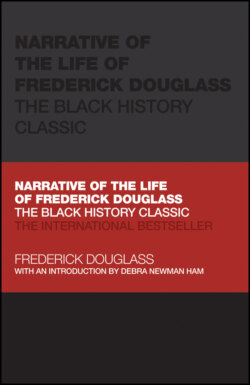Читать книгу Narrative of the Life of Frederick Douglass - Frederick Douglass - Страница 13
DOUGLASS AND CHRISTIANITY
ОглавлениеA theme in the Narrative is Douglass's assessment of the behavior of whites who called themselves Christians and yet taught their slaves about the Bible and the teachings of Jesus Christ. This was also a theme in many of his antislavery speeches. Some preachers and owners tried to live out the teachings of the New Testament, but most simply took lines from the Bible out of context to justify slavery. Indeed, Douglass notes that the worst owners also seemed to be the most religious. He mentions the slave breaker who wanted to worship and sing with him during prayer meetings, and owners and overseers who were rich and pious but who whipped women until the blood ran from their bodies.
In highlighting the hypocrisy of those who would call themselves Christians, the Narrative reads as quite an anti-religious text. In the Appendix, however, Douglass attempts to distinguish between genuine and false Christians. In doing this, he was probably trying to appease his supporters, who were not plantation owners but city-dwelling Christians in the North-East. An excerpt from the Appendix gives both a sense of the oratorical style that made Douglass famous, and his views on religion:
What I have said respecting and against religion, I mean strictly to apply to the slaveholding religion of this land, and with no possible reference to Christianity proper; for, between the Christianity of this land, and the Christianity of Christ, I recognize the widest possible difference – so wide, that to receive the one as good, pure, and holy, is of necessity to reject the other as bad, corrupt, and wicked. To be the friend of the one, is of necessity to be the enemy of the other. I love the pure, peaceable, and impartial Christianity of Christ: I therefore hate the corrupt, slaveholding, women-whipping, cradle-plundering, partial and hypocritical Christianity of this land.
